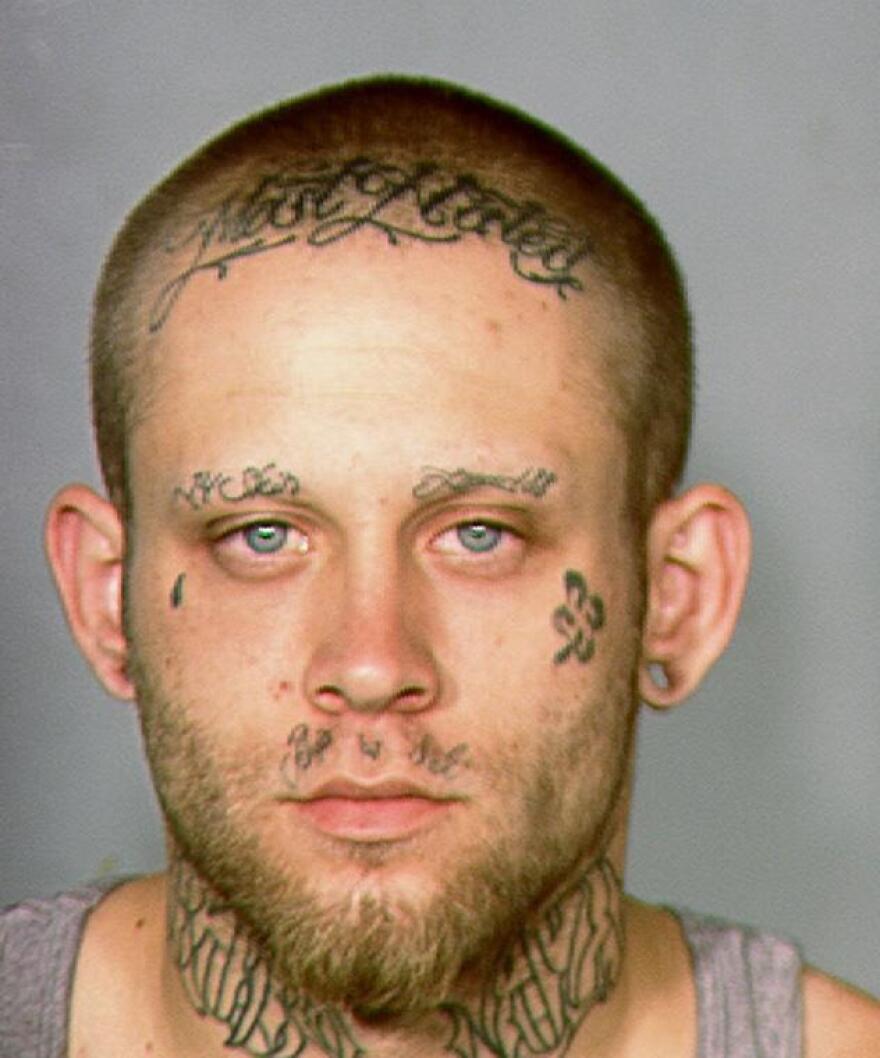Despite appearing in front of a jury with a tattoo-free face, 21-year-old Bayzle Morgan was convicted of robbery last week.
The case gained international attention when a Las Vegas judge decided to allow Morgan's facial tattoos to be covered with makeup before trial every day.
The tattoos concealed consisted of a tear drop under one eye, a swastika inside a four-leaf clover on the other, the words "baby nazi" across Morgan's neck, an iron cross on the back of his bald head, and the words "skin head" above his eye.
Morgan's attorney, Dayvid Figler, said it was a necessary step to ensure Morgan received a fair trial.
"One [juror] after another indicated that they could not be fair to our client based solely on his appearance at that time," Figler said. "That he was already convicted, on some level, before they had heard the first piece of evidence."
Nearly 20 potential jurors admitted during pre-trial they had a bias toward Morgan because of his facial tattoos for one reason or another.
"Justice is supposed to be blind," Figler said.
Nonetheless, the judge's decision to order a makeup artist to conceal the tattoos, a process that took one to two hours on average, was an unusual one.
"It's very salacious to talk about the face that he's got Nazi tattoos, he's got swastikas, he's got 'Baby Nazi' written on his neck, but no one really wants to question how that occurred," Figler said. "How much does he embrace the philosophy that we assign some of these things versus what is survival in the prison situation?"
Morgan, Figler explained, was a product of the state's juvenile justice system, and at 18 was given a three-year prison sentence for a non-violent theft offense. When he started his sentence, Morgan was tattoo free. When he came out, he appeared as he does now.
"These are not tattoos that someone saved up some money for, went down to the local strip mall and picked off of a wall that they wanted that particular tattoo," Figler said.
Figler said this case could set a precedent for those on trial who feel covering their facial tattoos would present them in their most favorable light in front of a jury, as long as there are no identifying pieces of evidence related to the facial tattoos.
Morgan will soon face a new judge, with a new jury, for the alleged murder of a 75-year-old woman in her home last year. Whether that judge will make the same decision regarding Morgan's tattoos remains to be seen.
Dayvid Figler, attorney








